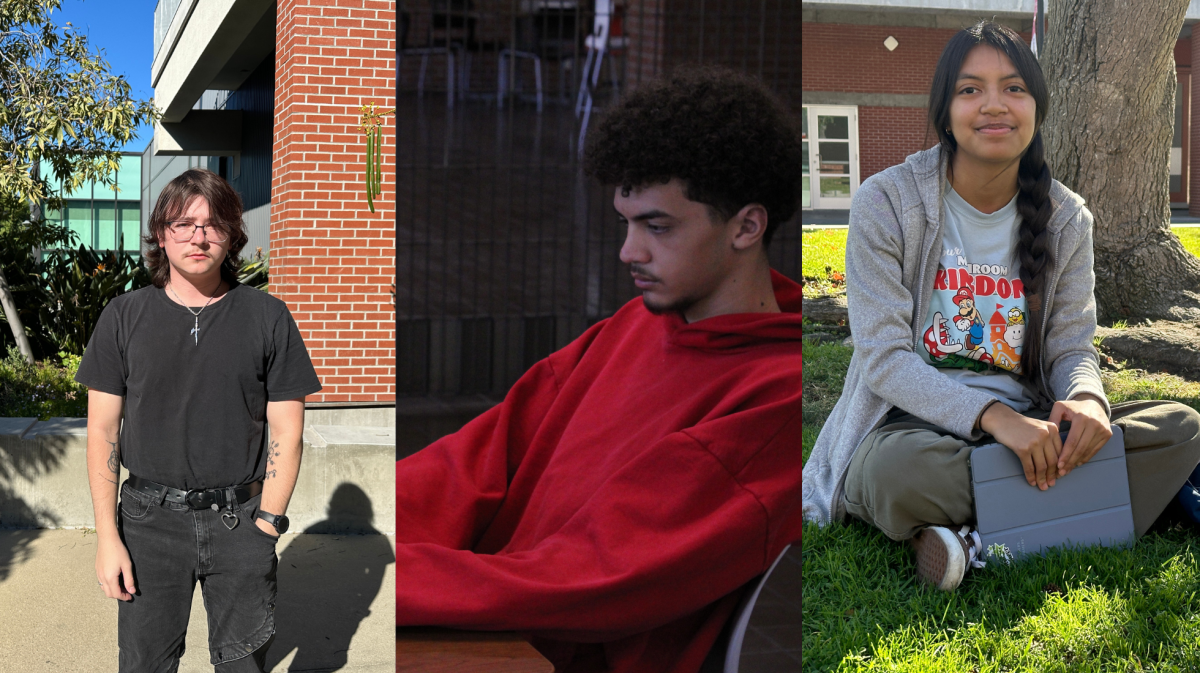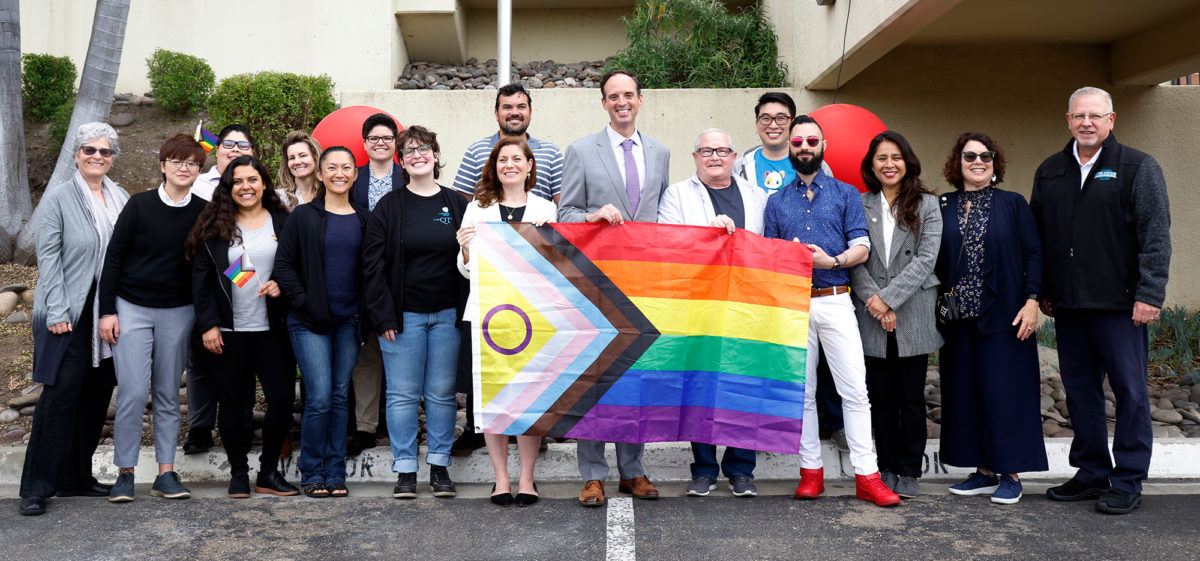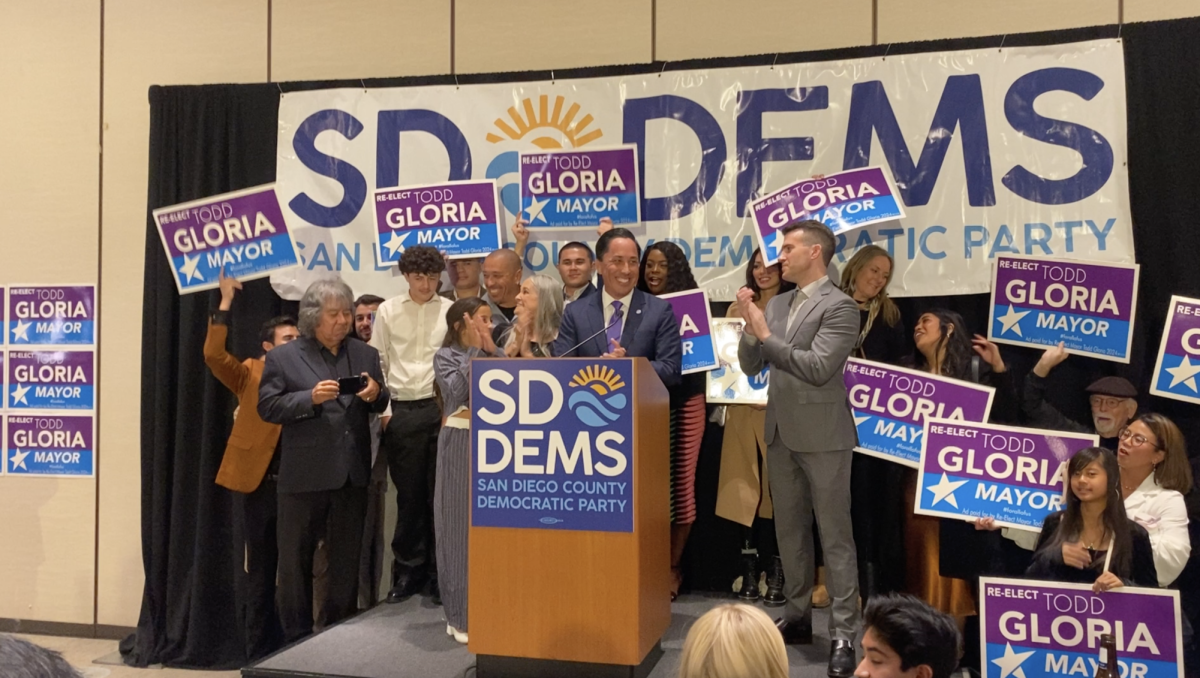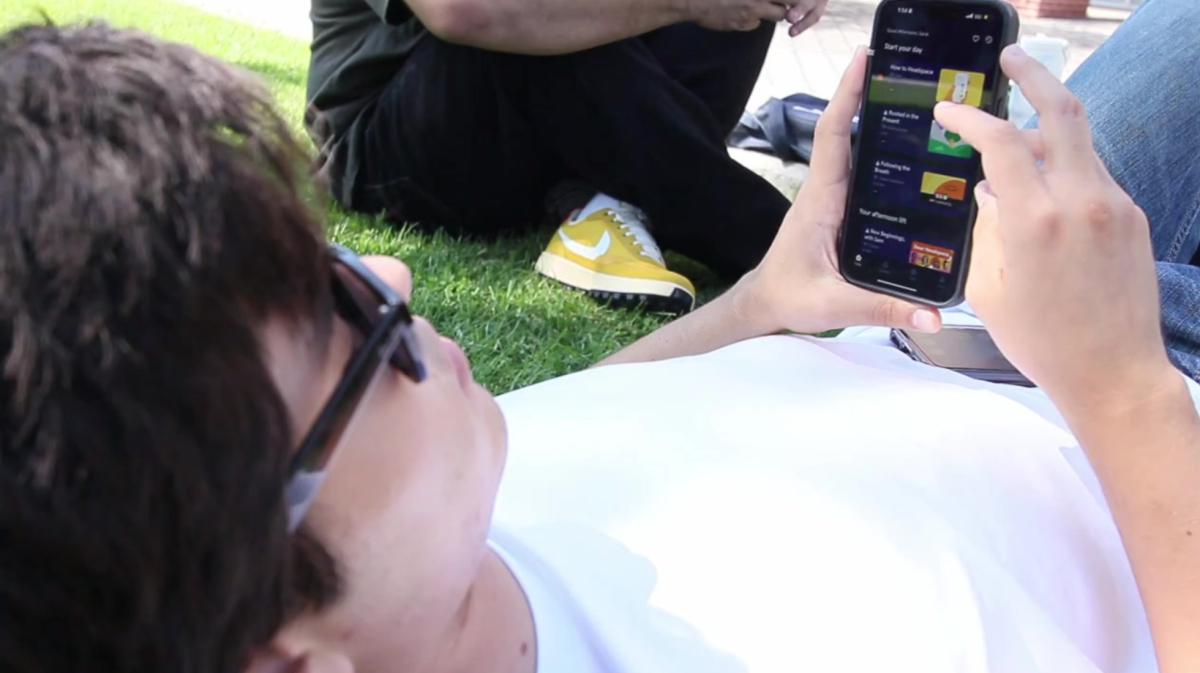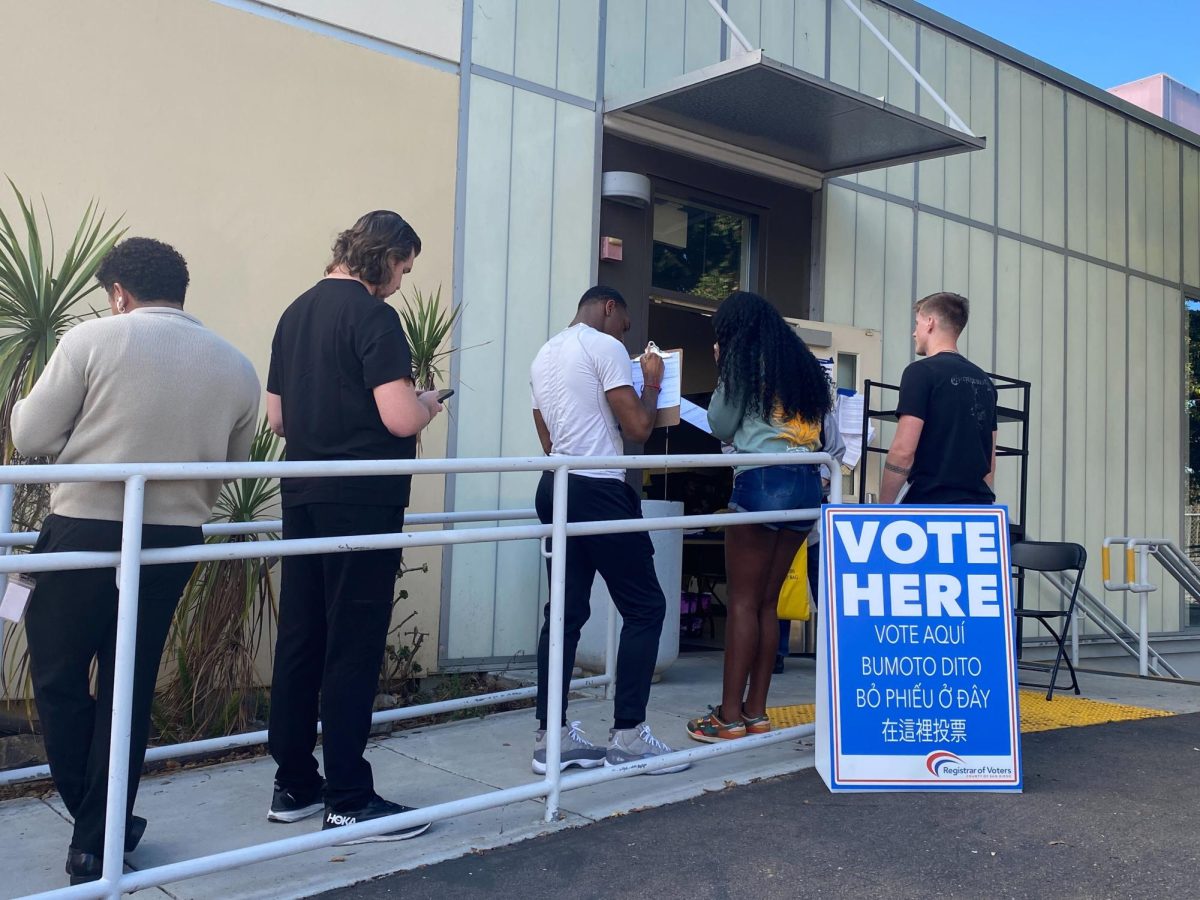
REPORT CARD: How did the City College Community Agenda fare?
Update: Dec. 17 at 10:15 a.m.: The Registrar of Voters certified final results Dec. 3.
Editor’s note: All results shared here are through Nov. 19. For updated results, click here.
For many in the San Diego City College community, the ongoing results of the November election have given them much to think about.
“Not the outcome I was hoping for,” cybersecurity major Georgeii Minaev said. “Not the outcome I was expecting, honestly.”
In August, City Times published the City College Community Agenda, a survey that identified issues that students, faculty, staff and community members cared about. City Times Media used the results to focus its election reporting.
CTM broke down candidates’ statements during debates and forums, as well as propositions and measures, based on the issues raised in the survey and published voter guides with the results.
Now that the election is over, CTM took a look at the interim results to figure out how the issues raised by the community fared.
CTM journalists also provided their personal analysis, grading the results based on how they felt the outcome reflected the community’s interests.
According to the Registrar of Voters, 56,000 votes have yet to be processed. The next update will be on Nov. 21.
The final count is expected to be completed by Dec. 5.
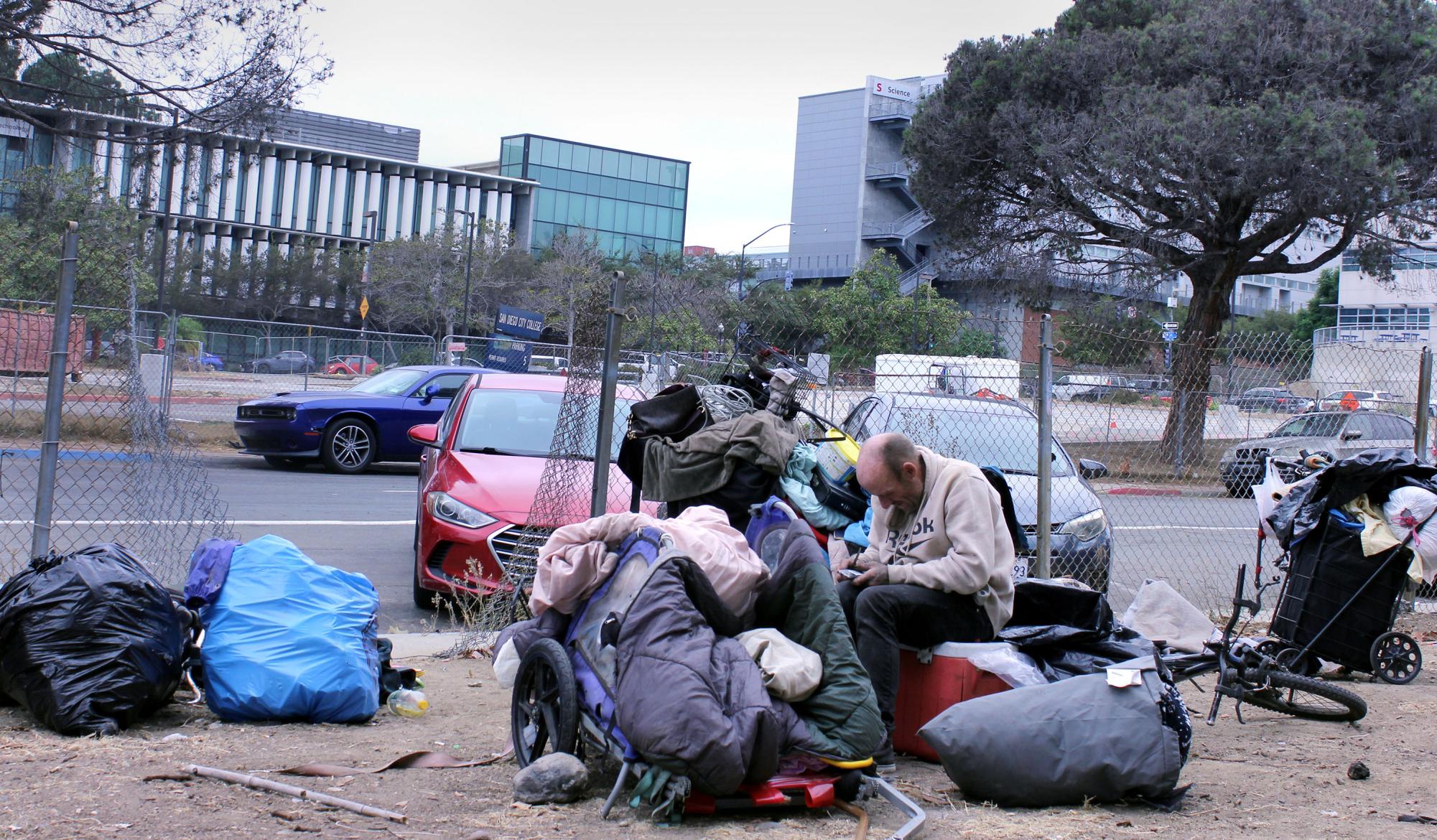
The importance of Housing and homelessness as the top issue selected in the City College Community Agenda reflects the fact that City College had the highest rates of students experiencing homelessness (28%) and housing insecurity (68%) in the San Diego Community College District, according to a 2023 RealCollege survey.
One San Diego County measure and two state-wide propositions attempted to address this top-of-mind issue within the City College community. City Times Media analyzed the results of these and produced an overall grade on how the results impacted the issue.
The expected ability of the San Diego Community College District to issue bonds to build student housing, keep it at affordable rates of $1,000 a month, and potentially expand that model to other campuses is a hopeful sign for future students. With the defeat of rent control expansion and housing-focused bonds, current City College community members will continue to seek relief, or as cybersecurity major Quinn Welsh asked in her community agenda response, “How will our leaders make housing and home buying more affordable for young people?”

According to Oct. 1 Community Agenda data, 49.6% of City College Community Agenda respondents felt college access and affordability directly affected their quality of life.
Two initiatives on the November 2024 ballot addressed college access and affordability. Both were bonds aimed at funding public education projects, including facility upgrades and repairs.
Below are the current vote counts of both initiatives, accompanied by City Times Media’s grade of the results based on the City College community’s priorities laid out in the agenda.
Overall, both California and San Diego voters appear to prioritize education, with a slight majority voting to authorize bonds on a state and local level. While both bonds prioritize facility repairs and upgrades to classrooms and labs across San Diego public schools, Measure HH would provide funds specifically to the San Diego Community College District. According to the SDCCD website, previous bonds approved in 2002 and 2006 allowed the district to build 36 new academic and career training facilities, fund 20 major renovations, build additional parking and upgrade public safety and accessibility. The final projects funded by these bonds were completed in June 2023.
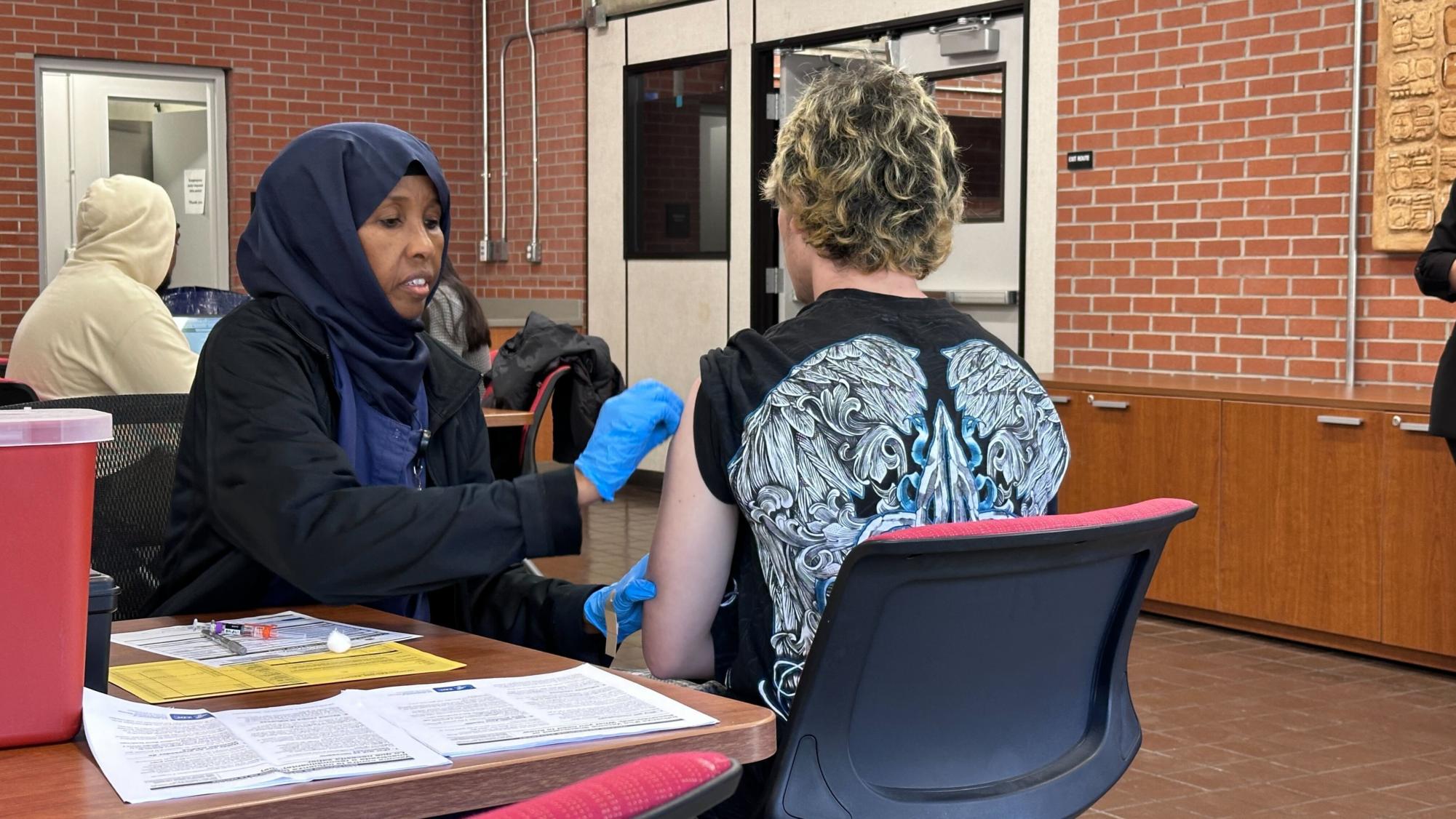
According to City Times Media’s City College Community Agenda, 49.6% of City College students, faculty and staff agreed that healthcare and reproductive rights were among the most important issues in this election.
San Diego County had two proposals on the 2024 ballot that could change healthcare for the entire region, but neither addressed abortion rights or universal healthcare.
Below are the current vote counts of both initiatives, accompanied by City Times Media’s grade of the results based on the City College community’s desire to see the elections address healthcare.
Neither initiative is a truly fundamental step toward reducing healthcare costs or providing Californians with comprehensive medical coverage. Proposition 34 was a blatant political attack by its sponsor, California Apartment Association, on the AIDS Healthcare Foundation for sponsoring Proposition 33. Due to the way Proposition 34 was written, the AIDS Healthcare Foundation will be the only organization affected by this arbitrary initiative passing.
Proposition 35 sets in stone and expands funding to a full range of health programs to protect and expand patients’ access to healthcare. There are no changes to the current medical insurance system.

The U.S. economy is constantly fluctuating with many factors, including interest rates, consumer spending and total employment, perpetuating the economic cycle. While the broader economy reacts to the projected change in leadership for the United States, San Diegans will have to wait as the results of the 2024 elections continue to be tabulated.
Economy and taxes were identified by 52% of the respondents to the City College Community Agenda survey as an issue they would like to hear candidates talk about.
In California, Adam Schiff (D) is projected to win a seat in the U.S. Senate over challenger Steve Garvey (R). With 72% of the votes counted in California and a 13-point lead, Schiff will win the seat formerly held by Diane Feinstein. The presumptive California Senator is a supporter of keeping technology jobs in the state and believes it can be a “force multiplier” for the economy.
Closer to City College, the fate of Measure E and Measure G hangs in the balance with the slimmest of margins. Both measures seek to add a sales tax (one cent and a half-cent respectively) to the city sales rate. As of Monday, Nov. 18, both are trending toward a NO vote, resulting in a failure of passage. These results are unofficial, but despite more than 56,000 ballots yet to be counted, these results are likely to change.
Because the state of economics is constantly in flux, assigning a grade becomes difficult because it is individually subjective. City College students expressed fear of not making ends meet. For students who work minimum wage jobs, a raise beyond $17 per hour seems unlikely. Fortunately, previous minimum wage increases are set to reflect price increases, or inflation, after 2026. In regards to tax increases, the city and County of San Diego seem united in rejecting any sales tax increases. Nationally, the Federal Reserve cut interest rates .0025% from 4.5% to 4.75% in hopes of hitting its inflation and interest rate targets.

According to the City College Community Agenda, 45.6% of respondents said that issues involving civil rights and inequalities were among their top concerns leading into Election Day.
Among the numerous proposals listed on the 2024 ballot, three stood out for addressing issues of civil rights and inequalities.
Below are the current voter counts of both initiatives, accompanied by City Times Media’s grade of the propositions’ results based on the City College community’s desire to see the elections address civil rights and inequalities.
With two out of the three proposed measures being turned down, it’s hard to call the results a complete win in positively addressing issues concerning civil rights and inequalities, However, it cannot be overstated how significant the passing of Proposition 3 is in furthering the rights of those in the LGBTQ+ community.
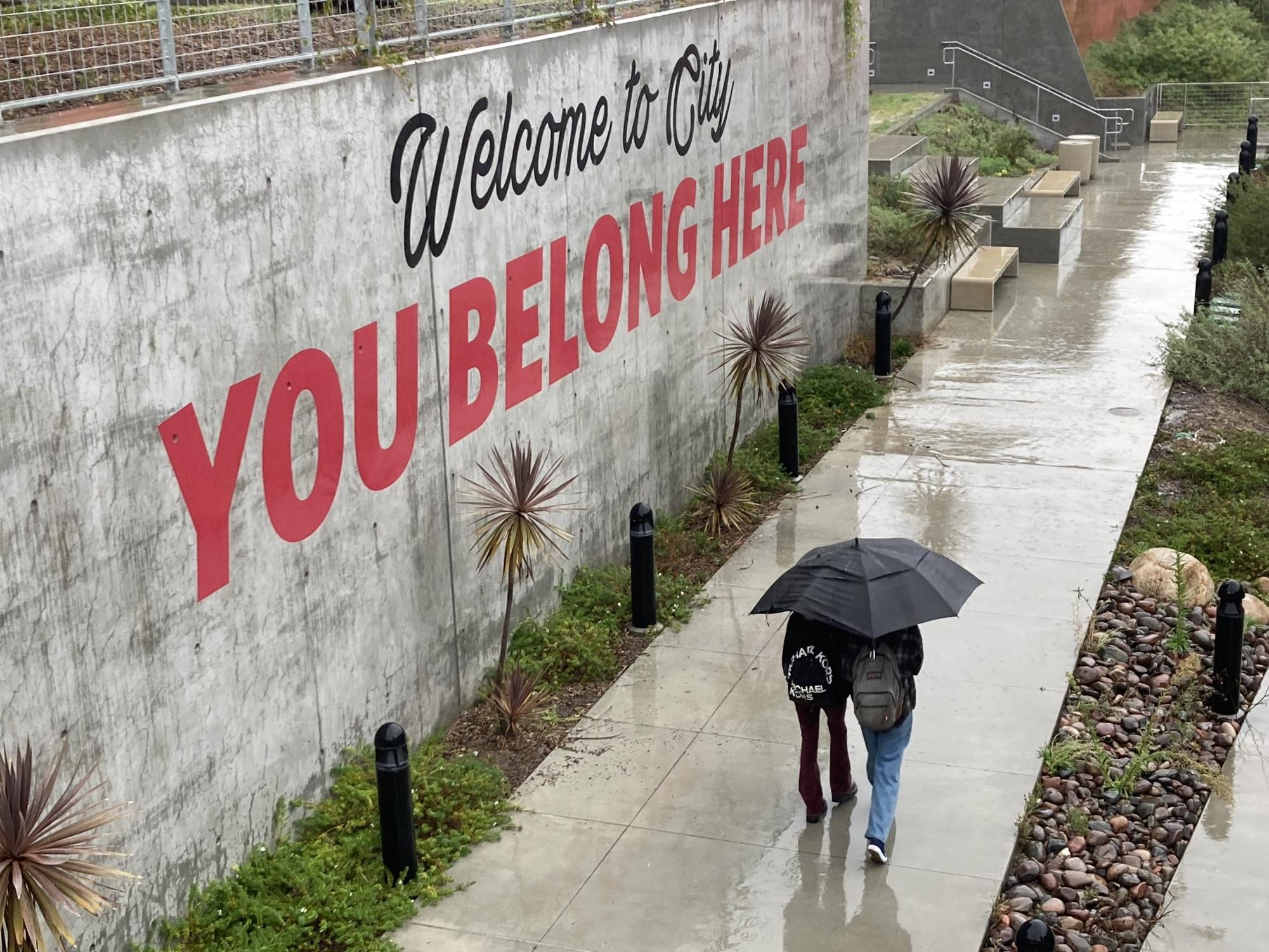
“Climate and the Environment” was a top issue for City College Community Agenda respondents, with 51% selecting it on the survey.
The issue was underrepresented on the ballot this year: only one proposition, Prop 4, directly addressed the community’s concerns.
The issue was discussed by candidates during the debates and forums analyzed by City Times Media. President-elect Donald Trump criticized the transition to renewable sources because “it takes a whole desert to make some (solar) energy come out.”
California’s next senator, Adam Schiff, took the opposite approach in his Oct. 8 debate with republican Steve Garvey.
“We have to aggressively incentivize renewable energy and move us away from fossil fuels,” Schiff said.
San Diego Mayor Todd Gloria emphasized the importance of protecting the environment to keep San Diegans safe and meet the city’s climate goals.
City council candidate for District 9 Sean Elo-Rivera said that San Diego needed to create alternatives to driving, calling for policies that allow people to live closer together and create a “multitude of mobility options.”
Candidates for city council for District 3 weighed in on San Diego’s stormwater crisis. The winner, Stephen Whitburn, offered a measured approach: “Well, I mean, more taxes would be required than we currently have at the moment in order to address our stormwater problems in any kind of an efficient way. Even if we don’t pass the sales tax or any other tax measures, we’ll continue to work at it and make improvements.”
Prop. 4 passing is undeniably good. It will provide resources to ensure California can prevent future wildfires and provide clean drinking water.
But it is concerning that it was the only proposition on the ballot addressing an issue that is clearly on the minds of many in our community. The degradation of our environment is taking a toll on our City and community members feel it every day. County Supervisor Nora Vargas recently acknowledged that the evacuation of the Tijuana River Valley was a possibility due to an inability to reach a solution to the sewage pollution in the river. In the summer of 2023, San Diego was hit by a hurricane for the first time, which is just further proof that our climate is changing. On top of that, the city still has to find a long-term solution to its stormwater crisis, which is filling the ocean with toxic pollution. More attention needs to be given to this set of issues.
Your donation will support the student journalists of San Diego City College. Your contribution will allow us to purchase equipment, cover the cost of training and travel to conferences, and fund student scholarships. Credit card donations are not tax deductible. Instead, those donations must be made by check. Please contact adviser Nicole Vargas for more information at nvargas@sdccd.edu.







